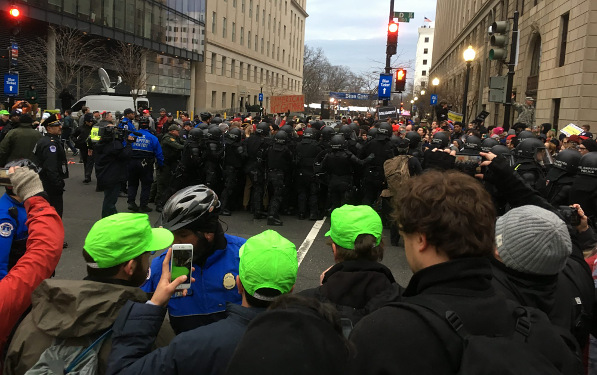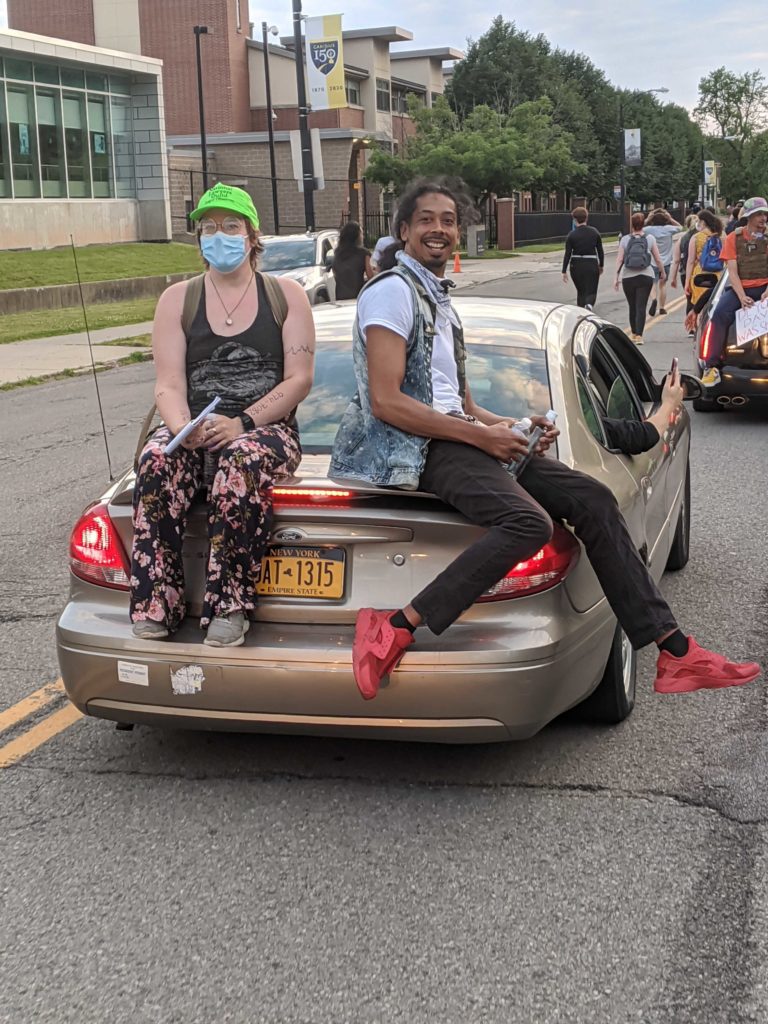
Legal Observing 101
June 30, 2020 Jamey Alea 0 Comments
As we near the end of the most intense pride month I have ever lived through, I want to talk a little bit about the anti-police protests we’ve been seeing all over the world and the specific way in which I’ve been participating. As I write this, Buffalo, NY is on its 31st consecutive day of protests. Our first police brutality protests took place on May 30th and were met with violence from BPD’s riot squad – tear gas, rubber bullets and pepper pellets. Then on June 4th, our city made international news when our local NPR station WBFO released a graphic video of police shoving elderly activist Martin Gugino to the ground.
I had been participating in the protests but was anxious to find the right place for myself within them. I saw people sorting themselves out into groups based on the ways they could best help with their skills – medics, peacekeepers, de-escalators. I started attending a skill share group about de-escalation tactics, but I struggle with confrontation and worried that I wasn’t really playing to my own strengths. But it was through that group that I came to be connected with the local chapter of legal observers.
If you’ve ever attended a protest and saw folks in neon green hats taking notes from the sidelines, you’ve already witnessed legal observers doing their job. But what is that job exactly?
The role of a legal observer at a protest is to provide some accountability for police behavior by watching them closely and taking down notes for evidence if they do anything illegal or violate anyone’s constitutional rights. The legal observer project was established by the National Lawyer’s Guild to help enable people to safely exercise their first amendment right to protest. Many of them work in the legal field or are law students, but it’s not a requirement. Their presence is meant to be a deterrent for cops behaving badly, since they can see they’re being watched by folks who know the law with the intention of gathering evidence. They also, I think, make protesters feel safer. When I’m at an event and I see green hats, I know cops will be more afraid to violate my rights and that I’ll have people fighting for me if something bad were to happen.
Legal observers are not protesters. We cannot participate in the protest that we’re observing; we can’t hold signs or participate in chants. That said, we are explicitly there to protect your right to protest. We’re taking notes on the cops, not on you. We’re not allowed to give you legal advice, but we will help connect you with legal aid if you were to get arrested while protesting.

So, how does it affect you? Well, if you’re a protester and you see the green hats, just give us some space and let us do our job – but I hope it makes you feel a little safer! If you’re the organizer for a protest or event, and you’re worried there will be cop activity at it, you can request us to cover it for you. (If you’re in Buffalo, email us at buffalolegalobservers@gmail.com – but most cities have a chapter, so take a look no matter where you are.)
If you’re just an activist looking for your place in the movement, like me, consider legal observing. You don’t need a specific background, it’s not very hard to get trained and we’ve been offering online trainings. And honestly, I really like it! I have some social anxiety sometimes about just showing up to an event without having a set purpose, so it feels good to come to protests with a specific mission that I know is helping. People are appreciative. And it’s gratifying to know that I’m holding police accountable. (That said, there is a history of cops targeting legal observers. I have experienced a little of that myself recently, and our local coordinator was briefly illegally detained last week, so that’s something to keep in mind. For what it’s worth, we put out a great statement about it in conjunction with the NYCLU.)
But to me, there’s no nobler job than protecting people’s right to protest and hopefully, making the cops feel a little afraid.